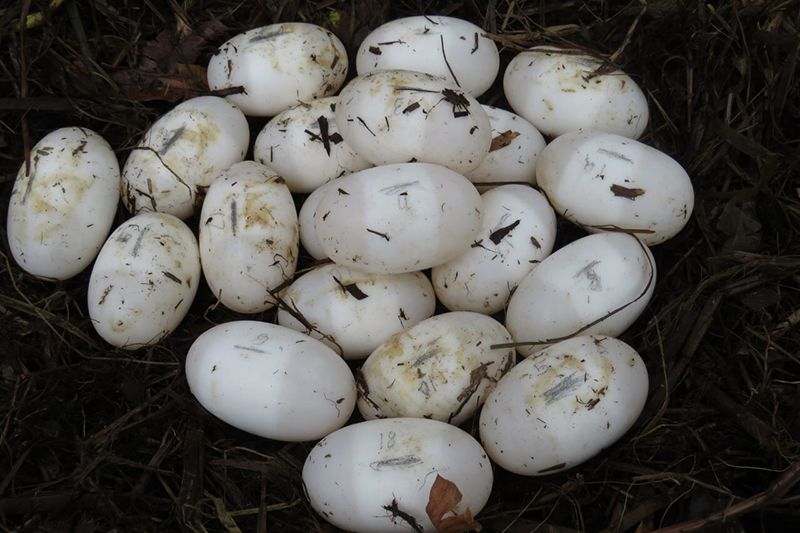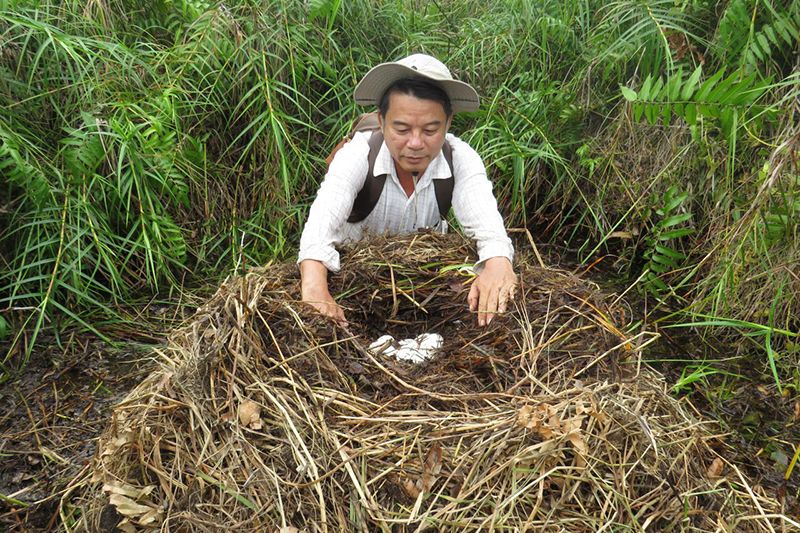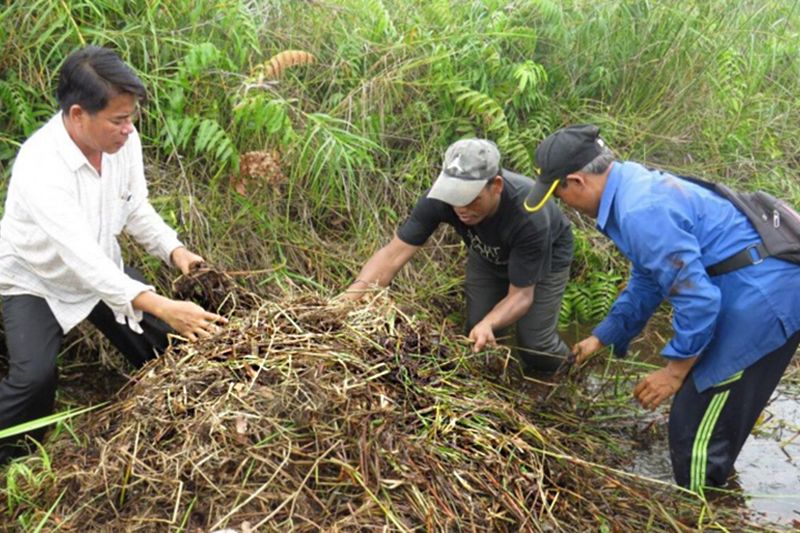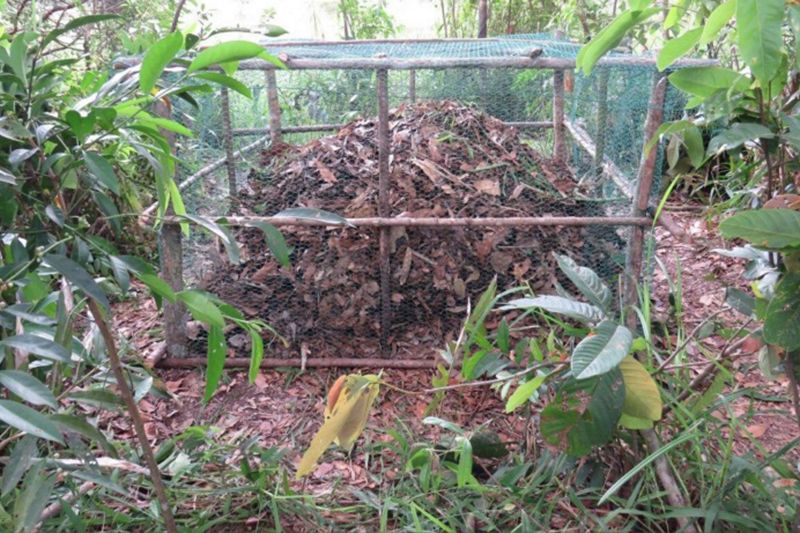Hope for the most endangered crocodile in the world
Siamese crocodiles are one of the most endangered crocodile species in the world. Every individual matters when the wild population numbers less than 300 adults. Earlier this year we reported that ten baby crocodiles had been spotted: the largest group of wild hatchlings ever found. Now we have even more exciting news.
PTES has been supporting Fauna & Flora International (FFI) and their local collaborators for several years. FFI is working in Cambodia to protect the last remaining known populations of Siamese crocodiles. Last month, a patrol team comprising FFI international staff and local community wardens discovered a wild Siamese crocodile nest containing 22 eggs in one of the last known strongholds of this critically endangered species. The discovery was at Veal Veng Marsh in Cambodia where the ten wild baby Siamese crocodiles were spotted, in the heart of the Cardomom Mountains.

Clutch of 22 wild Siamese crocodile eggs.
Discovering the nest
Community wardens have been maintaining a continuous patrol presence in Veal Veng throughout the lockdown in order to deter opportunistic poaching of any new crocodile nests. In April they discovered another nest, but unfortunately it contained no viable eggs. This most recent nest is the only viable clutch found this year and only the second viable nest found at Veal Veng since 2009. The previous one, found in 2018, contained 14 fertilised and four unfertilised eggs. We do know that other nests have gone undiscovered at this large wetland site; the baby crocodiles seen earlier this year are living proof that at least one additional nest was made during the 2019 season.

Discovering the crocodile nest.
Under careful watch
Like their saltwater cousins, Siamese crocodiles build a mound nest out of nearby vegetation before laying their eggs in the centre. They rely on the heat generated to incubate the clutch. The majority of the eggs in the newly discovered nest mound at Veal Veng were moved to a safe artificial nest that is protected from predators by a cage. As they are moved, the eggs are carefully marked so that the embryos inside aren’t damaged. They will then be closely guarded by community wardens until the baby crocodiles hatch. Once the eggs have hatched, the young crocodiles will be reunited with the siblings left in the original nest, to ensure that their mother protects them during their first stages in the wild.

Team moving some eggs to secure site for protection. 
Artificial nest.
The Cambodian Crocodile Conservation Programme, which FFI established in partnership with the Cambodian government, is helping to monitor and protect the wild population of Siamese crocodiles at a number of sites in the Cardamom Mountains.
Learn more about this project by visiting the project page:
